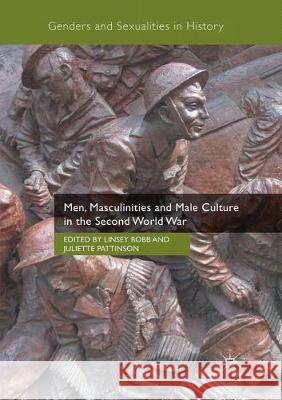Men, Masculinities and Male Culture in the Second World War » książka
topmenu
Men, Masculinities and Male Culture in the Second World War
ISBN-13: 9781349957873 / Angielski / Miękka / 2018 / 218 str.
Kategorie:
Kategorie BISAC:
Wydawca:
Palgrave MacMillan
Seria wydawnicza:
Język:
Angielski
ISBN-13:
9781349957873
Rok wydania:
2018
Wydanie:
Softcover Repri
Ilość stron:
218
Oprawa:
Miękka
Wolumenów:
01











